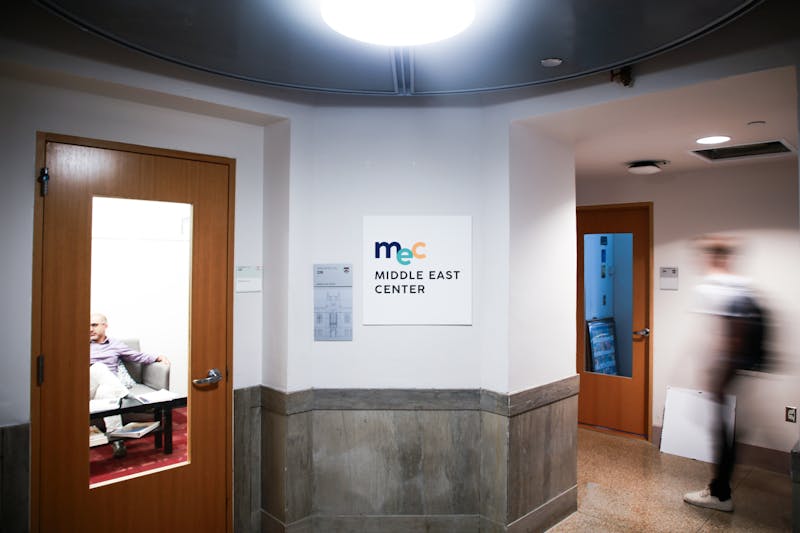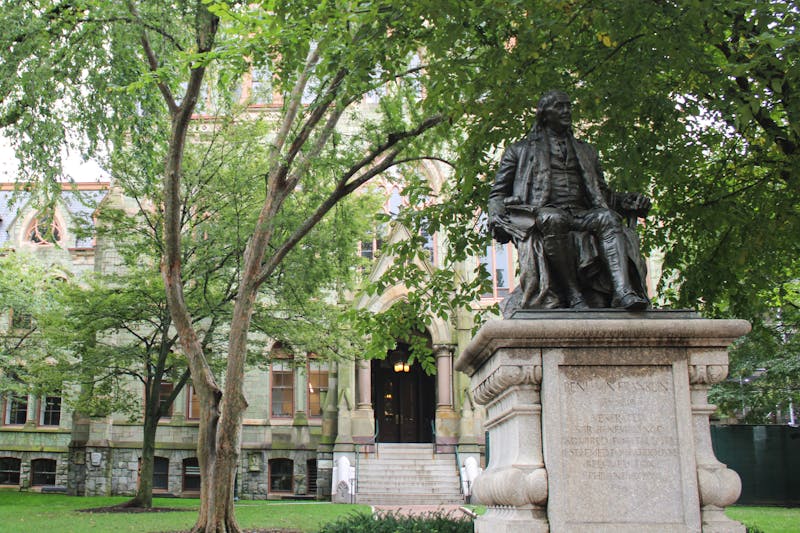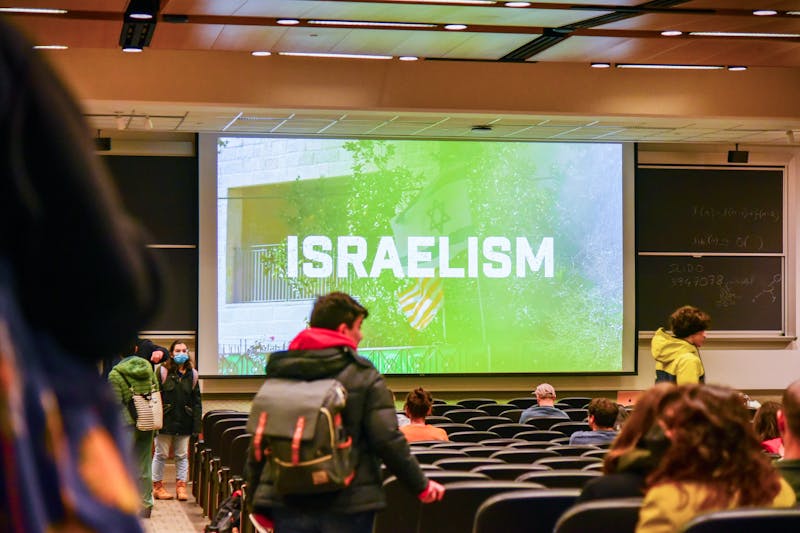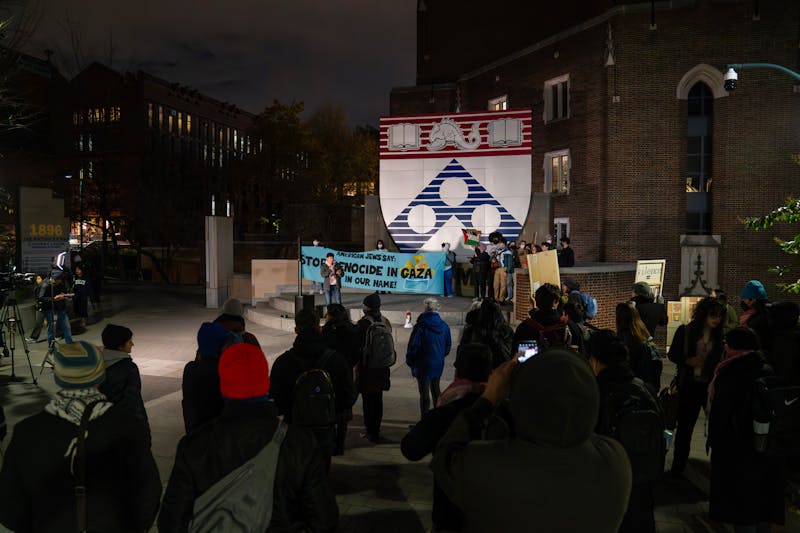
Penn community members expressed concern about academic freedom at Penn after the resignation of History and Sociology of Science professor Harun Küçük as faculty director of the Penn Middle East Center.
The Daily Pennsylvanian spoke with Penn faculty members, students, and alumni affiliated with the MEC about the implications of Küçük’s resignation as director amid heightened campus tensions during the Israel-Hamas war. In an “urgent message” released on Nov. 28, the Penn chapter of the American Association of University Professors’ executive committee announced Küçük’s resignation.
Küçük confirmed to the DP that he submitted his resignation, adding, “I don’t believe I have anything to say. I would not have resigned if I had any comment left in me.” While Küçük will no longer serve in his capacity as MEC director, he told the DP that he will remain a faculty member at Penn. He has served as MEC director since July 2021.
The AAUP statement claims that Küçük submitted his resignation in response to “inappropriate pressure from administrators.”
Professor Robert Vitalis, who served as MEC director from 1999 to 2006, wrote to the DP that he advised Küçük to resign.
“The president and the provost have lost sight of the university’s academic mission, and I am ashamed of a place that once inspired me,” Vitalis wrote.
The AAUP statement also expressed concern about alleged violations of academic freedom on campus regarding Penn’s decision to refuse to allow Penn Chavurah, a progressive Jewish studet group, to host a film screening of “Israelism.”
Earlier this week, nearly 100 community members attended a screening of the film “Israelism” in a room reserved by MEC. The University attempted to postpone the screening, which was sponsored by Penn Chavurah, until February after discussions with the Division of Public Safety and administrators, a University spokesperson told the DP.
AAUP-Penn wrote that they have received “reports that administrators have allegedly told the Middle East Center to cancel the screening.”
Student organizers will face disciplinary action after they “disregarded the University’s direction and secured a different space to show the film," a university spokesperson wrote to the DP.
Küçük was scheduled to speak at the University Council's open forum on Nov. 29 about "Penn Middle East Center's Response to Recent Events," but he did not show up to speak at the forum when called on.
Steve Weitzman, the Religious Studies department undergraduate chair and director of the Katz Center of Advanced Judaic Studies, emphasized the role of Küçük as a “bridge-builder” during his time as MEC director.
“The campus community must find a way to rebuild open-communication and trust,” Weitzman wrote to the DP. “[Küçük] has been trying mightily to do that; and his departure from this particular role is a huge loss from my perspective.”
History professor Firoozeh Kashani-Sabet, who previously served as the MEC director from 2006 to 2019, expressed a similar sentiment, saying she was “dismayed” and “disheartened” to learn of the circumstances surrounding Küçük’s resignation.
“Freedom of expression and freedom of assembly are the cornerstones of democracy and campus life in the United States, particularly during wartime, and Penn students and faculty deserve to have their rights upheld by the university administration,” Kashani-Sabet wrote in a statement to the DP. “Dr. Küçük’s resignation makes it crucial for the faculty in Middle East Studies to reexamine the state of the field at Penn and to make clear to the administration our roles and responsibilities in it.”
Professor of Cinema and Modern Media Karen Redrobe called Küçük’s resignation both “very sad” and “totally understandable.” She commended the “immense knowledge, heart, wisdom, and generosity” that Küçük brought to his role as MEC director in “the face of absent funding and institutional support, a divided campus, and a challenging and painful political climate.”
“I believe that the combination of underfunding, inadequate space, canceled or prohibited events, and institutional disregard made his job unsustainable, and our whole community is now in a worse position as a result,” Redrobe wrote to the DP. “Harun was actively fostering conversations, very moving and inspiring conversations, across all kinds of groups, refusing the divisions that the university continues, inadvertently perhaps, to entrench.”
“The absence of a director for the Middle East Center poses a real threat to equity, inclusion, and academic freedom in the current climate,” Redrobe wrote to the DP.
A Penn graduate affiliated with the MEC during their time at Penn, who requested anonymity due to fear of retaliation, shared that they were “disappointed” but “not surprised” upon learning about Küçük’s resignation, adding that they believe Penn has a responsibility to protect students, faculty, and staff.
“While tensions were definitely high during my years on campus, I’m extremely dismayed to see how the situation has deteriorated,” the graduate said. “I am saddened for the Penn community that Küçük will not continue in his role but celebrate the integrity it takes to stand up for what is right, at such great personal cost.”
College junior Teddy Conover, who took STSC 0100: Emergence of Modern Science taught by Küçük his first year at Penn, described Küçük as “particularly formative” for him as he cultivated a classroom environment that was both “very intellectual” and “welcoming.”
“I think it's concerning and super unfortunate that it's come to pressures from administration to cause someone so professional, and so excellent to resign from — I know not his professorship — but a very prestigious leadership position,” Conover said.
Conover also made note of a Penn Today article from Nov. 20, which featured Küçük, highlighting his Locust Walk conversations designed to provoke conversations and bridge differences with Joshua Teplitsky, director of the Jewish Studies program.
“I thought [the resignation] is incredibly concerning for a couple of reasons," Conover. "One was that Penn was using [Küçük] in a social media way, just a week ago with Professor Teplitsky.”
2017 Ph.D. graduate James Ryan, who currently serves as the director of research and Middle East programs at the Foreign Policy Research Institute, said the loss of Title VI funding for the MEC left it “vulnerable.”
“What [Küçük] has been able to do in leading the center in this time, it’s heroic,” Ryan, who served at the MEC as a program assistant from 2008 to 2011, said to the DP. “That all just sends a message that it’s very dangerous to the academic community at Penn that says it’s not worth your trouble to try and do things that might be controversial.”
In September 2022, the DP reported that the MEC lost all federal funding due to insufficient institutional support from the University. The United States Department of Education had previously granted the MEC Title VI funding due to its status as a National Resource Center and its allocation of student language fellowships with the DOE’s Foreign Language & Area Studies program.
In October 2022, Penn announced that it would fully fund the MEC for four and a half years after outrage from students.
Ryan praised Küçük’s navigation of his “difficult” position.
“I find it hard to imagine someone responding to all of this with more grace than he has,” Ryan said. “They’ve got to know what they have.”
The Daily Pennsylvanian is an independent, student-run newspaper. Please consider making a donation to support the coverage that shapes the University. Your generosity ensures a future of strong journalism at Penn.
Donate












